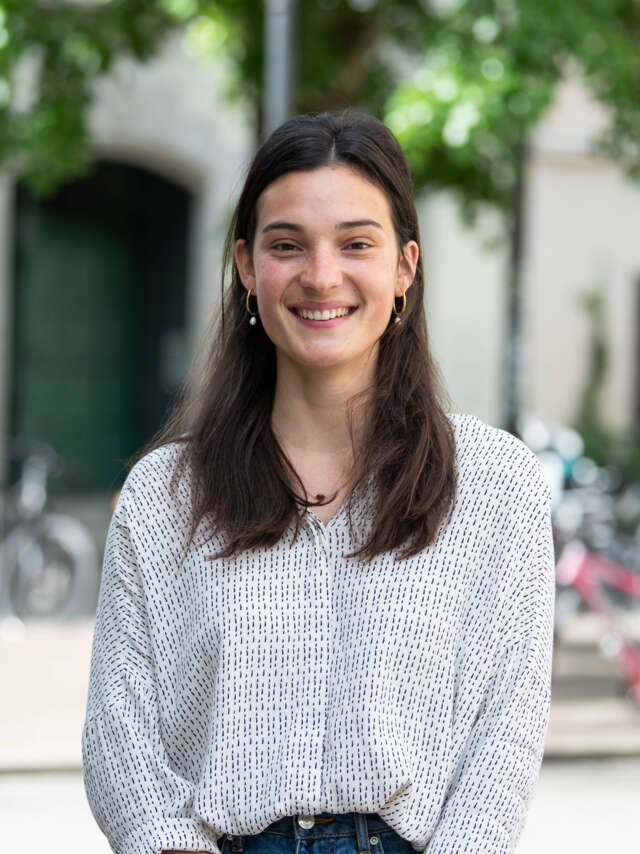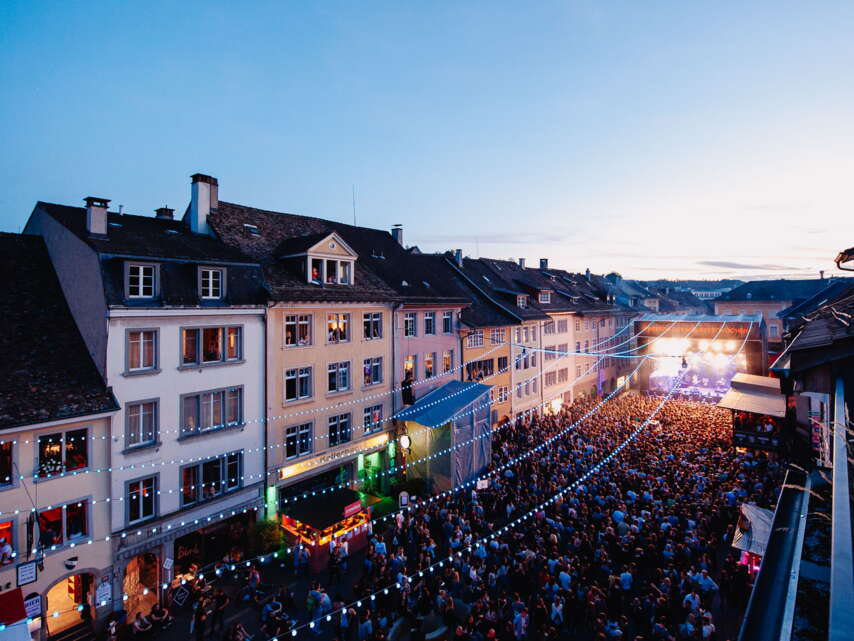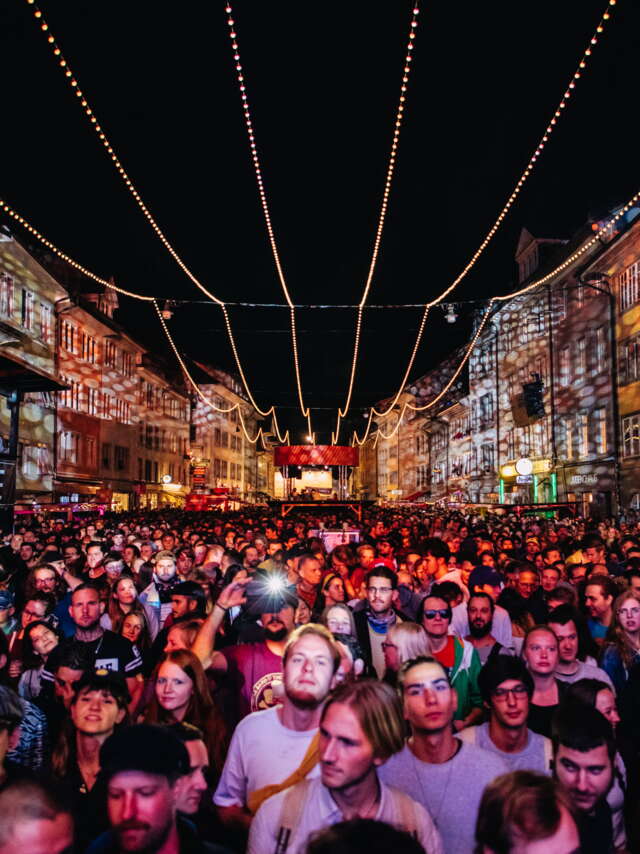"We want to be a festival for everyone"
The Winterthur Music Festival Weeks are one of the oldest pop and rock festivals in Europe and a highlight of the Swiss festival summer. For one and a half weeks, the lovingly designed festival in the heart of the old town offers a selection of different concerts from newly discovered to well-known musicians. Lotta Widmer is responsible for sustainability at the Musikfestwochen and gives an exciting insight into her work.

Lotta Widmer from the Winterthur Music Festival. Photo: Andri Kaufmann Janutin

Photo: Thomas Gerstendörfer

Photo: Andrin Fretz
What does sustainability mean for the Winterthur Music Festival?
For us, sustainability means responsibility - because measures need to be taken now so that there will still be festivals tomorrow. We also want to be a festival for everyone. It is important to us to always take a holistic view of sustainability and thus include all dimensions such as the environment, social issues and the economy. Sustainability is a process that we started several years ago. With measures introduced early on, such as switching to reusable crockery and cutlery or booking bands that are on tour anyway, we have been striving to be a role model and pioneer for some time now.
What new things are being done in the area of sustainability this year?
Last fall, we carried out a comprehensive life cycle assessment together with an engineering firm. Based on the footprint determined, we were able to identify our major levers. Until now, the main focus of our measures has been on ecology. We want to change this this year by expanding social sustainability: For example, by introducing a "awareness concept" interpreting a concert into sign language and training ourselves to more consciously break down barriers on our festival site. We do this together with specialists and/or those affected, as we don't have these perspectives and expertise in the team ourselves. But we also have new measures in the area of ecology: We will cover 50% of the train costs if a band chooses not to travel by plane or car in return, and we are organizing the festival completely CO2-neutral for the first time. But here, too, we want to be transparent: We can't do it without offsetting. We adhere to the guiding principle: first prevention, then reduction and only then compensation of the emissions caused.
What are the biggest challenges when organizing a festival of this size on a sustainable basis?
It takes a lot of time, money and effort. Time to read up on the subject and undergo further training, to analyze, exchange ideas with other organizers, discuss as a team, plan measures and then evaluate them after the festival. And money to pay for the time just mentioned, to obtain expertise where necessary and to pay for the implementation of the measures. In addition, as a non-profit organization, we must remain economically viable and not neglect our day-to-day work. There are many ideas and measures, but implementing them is not always easy. Sometimes it fails because of the budget, sometimes because of internal differences of opinion and other times because of capacity.
Personal tip from Lotta Widmer on how you can participate sustainably as a festival visitor: Come to our festival on foot, by bike or public transport and choose a delicious veggie menu - we have a great selection.
Interview: Florence Zimmermann









